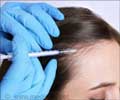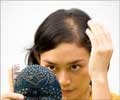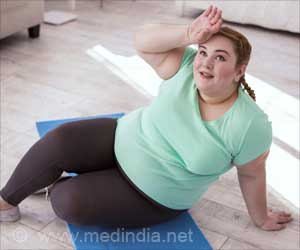Post Covid Skin Issues: Best treatment for hair fall is to manage stress and lead a healthy lifestyle. Use masks made of natural, soft fabric (like cotton) should be worn under a regular mask.
- Many people suffer form post Covid skin issues like maskne, rosacea
- Wash your face and apply moisturizer to keep away from skin irritation
- Avoid wearing masks made of synthetic fabrics, such as nylon or rayon
When a person's body is under emotional or physical stress, it goes into survival mode. The body only focuses on the essential parts needed for survival. Hair, being a non-essential part of the body, doesn't get as much nutrition, and this leads to hair loss. The best treatment for this state is the correction of the underlying cause, focusing on managing stress and leading a healthy lifestyle.
If one is a smoker, considering quitting the cigarette is a great step towards a healthy way of life. When a person experiences hair loss that: comes on suddenly, causes hair to fall out in clumps, leads to bald patches, and is accompanied by scalp itching or pain; they must consult a dermatologist and get the reason for their hair fall diagnosed.
Maskne is a common occurrence with Covid and it stays put after. Acne caused or multiplied by wearing masks comes under Maskne. There are various types of Maskne, the most common ones that appear are 'acne mechanica', caused by the friction and precipitation trapped underneath the mask, leading to pore clogging and bacterial growth resulting in pimples. Regular acne treatments help in this; however, acne creams dry out the skin and one must use a moisturizer to keep the skin barrier intact.
When taking care of these issues, the face should be washed thrice a day with lukewarm water after which the skin must be dried by patting the face. A non-comedogenic moisturizer should be selected to avoid pore-clogging. An oil-free and water-based, gel moisturizer should be used by individuals with oily to combination skin. Those with dry skin should use a cream moisturizer with ingredients such as ceramides.
Makeup products that are non-comedogenic and hypoallergenic must be preferred if avoiding makeup is not probable. It is significant to wash the mask with a gentle detergent or toss it if disposable after each use. Wearing a face mask that fits comfortably, but isn't too tight and has three layers of fabric is necessary; if the mask is not correct, touching the face more often to fix the mask leads to increased chances of contamination.
Masks made of synthetic fabrics, such as nylon or rayon should be avoided as these materials can irritate the skin. For those with sensitive skin, masks made of natural, soft fabric (like cotton) should be worn under a regular mask.
The American Academy of Dermatology Association reports that after every four hours of non-stop wearing a mask, a 15-minute break for the skin while maintaining social distancing helps. Although it's imperative to wash hands before taking a mask break. A person can't avoid social contact entirely due to innumerable reasons, even though quarantine is the best way out of such a situation, here masks and sanitizers play a very crucial role to help flatten the curve and to stay protected. The best way to protect oneself and those around from Covid-19 is by keeping the mouth and nose covered.
If stress causes hair fall and skin issues, which in turn causes more stress, visit the dermatologist who could solve all the problems.
Source-IANS
















